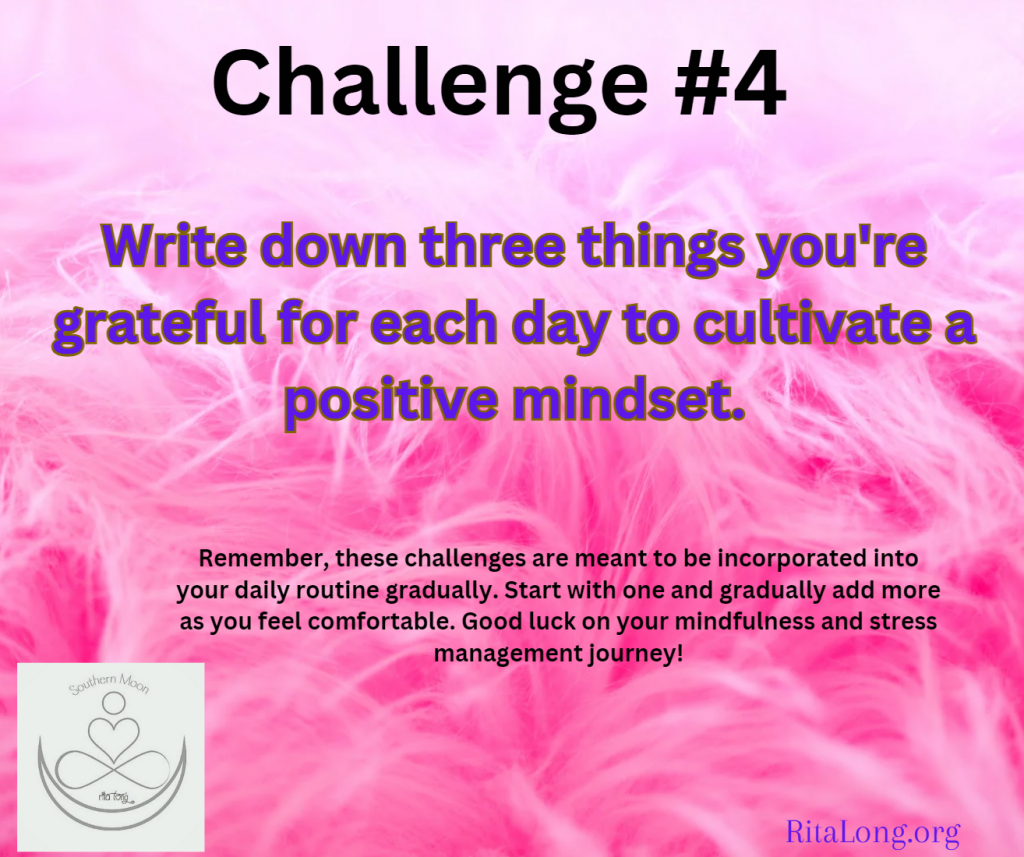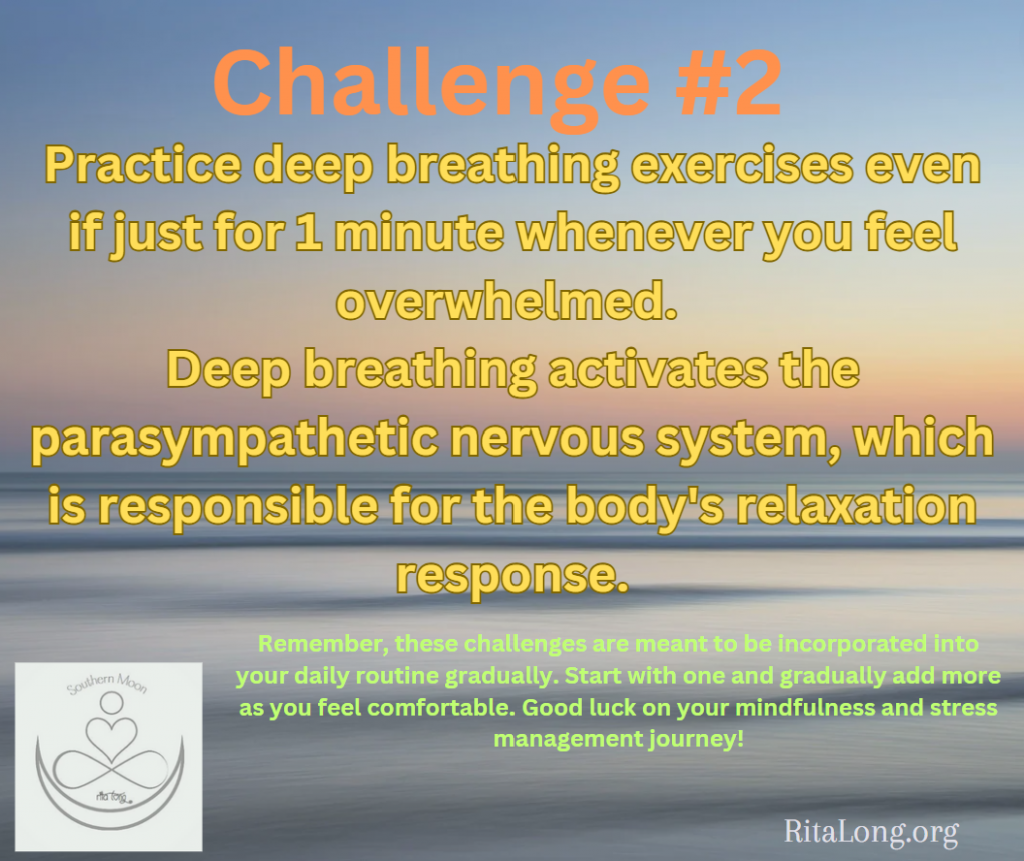
Challenge #8 – Journaling









Please join me in `15 days of challenges for Introducing mindfulness and stress management into your life. Introducing these techniques into a stressful life is crucial for several reasons. Firstly, chronic stress can have detrimental effects on both physical and mental health. It can lead to increased risk of heart disease, high blood pressure, and weakened immune system. Additionally, stress can negatively impact cognitive function, memory, and concentration, making it difficult to perform well in daily tasks and responsibilities.
Furthermore, stress can also affect relationships and overall quality of life. It can lead to irritability, mood swings, and decreased patience, which can strain relationships with family, friends, and colleagues. By implementing stress management techniques, individuals can improve their emotional well-being and enhance their ability to handle challenging situations effectively.
Moreover, stress management can also improve productivity and performance. When individuals are overwhelmed by stress, they may experience burnout, decreased motivation, and difficulty focusing on tasks. By incorporating stress management practices, such as mindfulness and relaxation techniques, individuals can enhance their ability to stay focused, make better decisions, and maintain a higher level of productivity.
Lastly, stress management can promote overall happiness and life satisfaction. By taking time to prioritize self-care and engage in activities that reduce stress, individuals can experience greater joy, fulfillment, and a sense of balance in their lives.
However, it’s important to note that none of the stress managements techniques that will follow should not be used as a substitute for medical treatment for any health conditions.

Gratitude has been shown to have a positive impact on health in several ways. When we express gratitude, it activates the brain’s reward system, releasing dopamine and serotonin, which are neurotransmitters associated with feelings of happiness and well-being. This can help reduce stress and anxiety, which in turn can have a positive effect on physical health.
Gratitude also promotes better sleep. When we focus on the positive aspects of our lives and express gratitude for them, it can help calm the mind and promote relaxation, making it easier to fall asleep and stay asleep.
Additionally, gratitude has been linked to improved immune function. Studies have shown that people who regularly practice gratitude have higher levels of immunoglobulin A, which is an antibody that helps fight off infections.
Furthermore, gratitude can improve heart health. It has been found that people who regularly practice gratitude have lower blood pressure and a reduced risk of heart disease.
Overall, cultivating a sense of gratitude can have a profound impact on both mental and physical health.